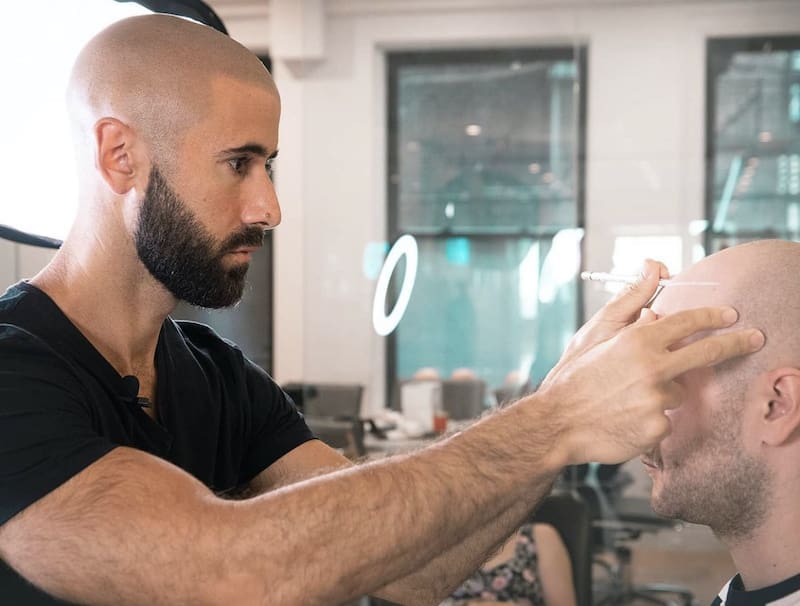Can you stop hair thinning?

Hair loss is a normal part of life. Your scalp can shed 50 to 100 strands of hair per day. The problems start when you’re shedding more hair than normal. You might notice bald spots or increased thinning around certain parts of your head.
There could be a number of reasons for hair thinning. However, there are several options that could potentially stop hair thinning and treat hair loss. Continue reading to learn more about how to stop hair thinning.
What causes hair thinning?
The hair life cycle consists of a growth, resting, and shedding phase. Any one of the hair follicles on your scalp could be going through any of these phases at any particular time. Still, losing more hair than normal could indicate a more severe underlying cause.
Some causes of hair thinning are temporary and respond well to simple lifestyle or dietary changes. Other causes of hair thinning may be more permanent and result from other conditions.
One of the most common causes of hair thinning and hair loss in men is androgenetic alopecia. This form of hair loss is hereditary, meaning it runs in the family. It can develop in men younger than 30 and affects up to 50% of men by the time they are age 50.
Hair thinning can also be caused by other factors such as:
- Stress – Psychological and physical stress can affect the hair follicle life cycle.
- Medications – Some medications can affect hair growth, such as certain heart medications and antidepressants.
- Specific hairstyles – Some hairstyles like ponytails can pull on the hair.
- Chemotherapy – Cancer treatments like chemotherapy and radiation could damage hair follicle cells.
How to stop hair thinning
There are some habits, lifestyle changes, and treatments that can help stop hair thinning. It’s important to consult your healthcare provider to ensure that you don’t have a medical condition that may be causing your hair to thin.
Hair Loss Diet
A well-balanced diet may be a vital component to stopping hair thinning. Studies have shown nutritional deficiencies can play a role in all types of hair loss. One study found that protein, iron, and copper deficiency is associated with hair loss. Another study found that the Mediterranean diet may help reduce the onset of androgenetic alopecia. However, none of these claims have been verified.
Hair Loss supplements and medications
Supplementing with vitamins and essential nutrients may help slow hair loss and treat hair thinning. For example, supplementing with vitamin D or saw palmetto may help improve hair growth. Medications like Propecia and Rogaine are approved to help treat hair loss in men and women.
Hair Transplant Surgery
Some people may be interested in surgical options for hair thinning. Hair transplant surgery involves taking hair follicles from one part of your head and implanting them into the affected areas of hair loss. This is an invasive procedure that requires days or weeks of downtime. For most people, it takes up to 9 or 12 months to see results.
Scalp micropigmentation
A noninvasive option for dealing with hair thinning is scalp micropigmentation. The SMP treatment uses detailed micro-needles to deposit pigment into the scalp. The result creates the appearance of tiny hair follicles that help thicken and restore the look of fuller hair. The scalp micro pigmentation procedure is a low maintenance style for hair loss. You simply trim your hair 2-3X a week…and that’s it.
Contact Scalp Micro USA
Contact the team at Scalp Micro USA to see how they can help you with hair loss. Hair thinning can be caused by a number of problems. For most people, however, treatment options are easily accessible. Scalp micropigmentation could be the answer you’re looking for to help cover up any balding or thinning spots on the scalp.

Tired of hair loss?
Get the perfect hairline, 100% guaranteed, with our scalp
micropigmentation treatment that is customized just for you. No more
crazy combovers. No more ineffective medications. Just results.